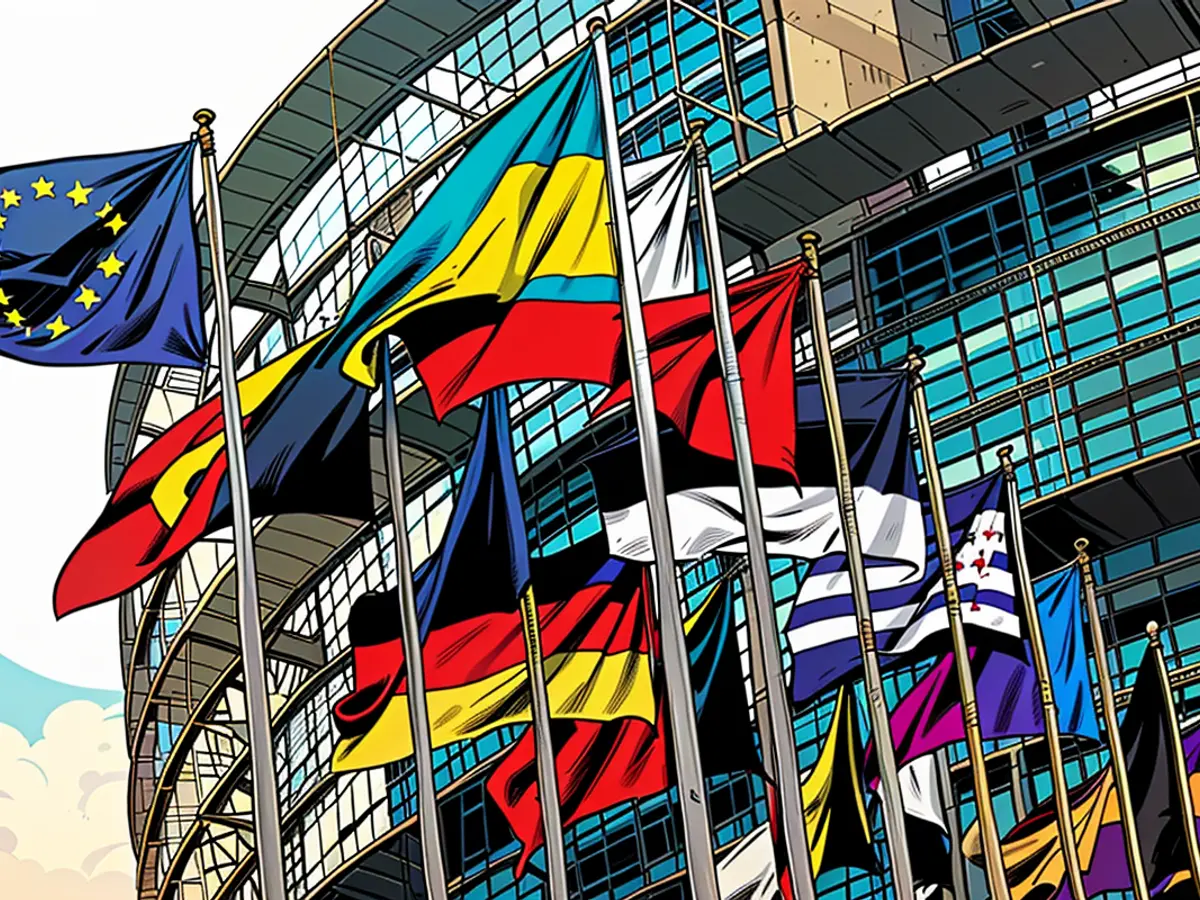Homework not done - Do these EU states not care about climate protection?
Ursula von der Leyen presented herself for cooperation with European states but did not propose it. Her prestigious project, the Green Deal, was practically rejected at the beginning of June. Green politics, which comes after the first global climate protests and in times of heat records, floods, and forest fires, is no longer in. This became clear again at the end of the previous month: By June 30th, all EU members had to submit their national energy and climate plans (NECP) to Brussels. However, the result is meager, as shown in a stern-inquiry at the European Commission. Only four countries have submitted their documents on time.
"The Commission urges all other member states to present their final plans as soon as possible," emphasized a Commission spokesperson in a written response. Only Finland, Sweden, Denmark, and the Netherlands have submitted their documents.
EU Commission Unhappy with No Climate Plan from EU Member States
In 2018, EU countries agreed on national plans in which they were to set their energy and climate policy for the coming ten years. This instrument is intended to help implement European climate and environmental targets by 2030 and secure the energy supply of the Union. Accordingly, greenhouse gas emissions should be reduced by 40% compared to 1990 and the share of renewable energies increased by at least 32%. The national energy and climate plans had to be repeatedly revised to meet the requirements of the European Commission.
It is not the first time that states have failed to submit their documents on time or only incompletely. The EU has previously responded to such omissions with a breach of contract procedure. States are first warned before being sued and fined.
Last year, no proposal from the countries passed the Commission's TÜV because all states had set lower targets for renewable energy generation than decided by the EU. 69% of the electricity mix should be covered by renewables by 2030. However, the national plans of the states only reach a share of 66% of green electricity, as shown in an analysis by the think tank Ember from the previous year.
Germany was also criticized by the Commission for lacking binding annual targets in the Climate Protection Regulation. In addition, Brussels objected to insufficient descriptions of necessary protective measures and their effects. The German government was asked to adjust its plans accordingly.
No EU Country Without a Warning, Half of Them Sued by the ECJ
To date, there is no single country in the European Union that has not been asked at least five times to rectify omissions and revise their own energy and climate plans. The Commission writes to the affected countries in this regard. They have two months to respond. Most of these procedures are currently ongoing for Poland (12), Austria (12), Bulgaria (11), and Romania. Germany was most recently warned about inadequate bird protection and insufficient noise action plans. If the warnings are ignored, another letter follows, which must also be answered within two months.
Afterwards, the EU Commission summons the European Court. Thirteen EU members are currently accused, many of whom in multiple cases, such as Greece for illegal landfills, Poland for exceeding fine dust limits, or France for insufficient promotion of renewable energies. Germany has only been warned five times but not yet sued.
The proceedings usually last around 20 months. Afterwards, fines in the form of lump sum payments and daily penalties are threatened. The former is a one-time payment that covers the period before the court ruling. With the daily penalty, the countries are supposed to be encouraged to fulfill their obligations. The amount is paid daily according to the judgment. The daily rate is calculated based on various factors. For Germany, it is at least 14,350 and a maximum of 861,000 Euro.
Countries do not have to fear sanctions
At the end of June 2024, the NECPs of all member states must be in Brussels. However, the majority of countries have missed the deadline – Germany as well. The final version is currently still being determined in the federal government, according to a spokesperson for the responsible Economy and Climate Protection Ministry in response to a stern inquiry. The final version will be presented this summer. However, the spokesperson remained vague about the exact date.
It is rather unlikely that the 24 remaining countries will submit their national plans in the short term. Austria, for example, did not even submit a proposal in the last round, according to the EU Commission. France had already announced that, given the political situation in the country, it would currently be impossible to present the final plan.
However, the countries do not yet face any pressure. They must first be warned about their failures in Brussels. A lawsuit can only be filed at the earliest four months later. However, there has been no talk of this in Brussels so far. At an informal European Council meeting on the topic of Energy and Environment in July, it was planned to address the failures of all other countries as a "matter of urgency," the Commission spokesperson told stern. Countries like Austria are unlikely to be affected by such reprimands. Whether countries like Germany will yield to such pressure remains uncertain at least.
Despite the EU's urging, several member states have yet to present their final national energy and climate plans, leading to concerns about climate protection. As of now, only Finland, Sweden, Denmark, and the Netherlands have submitted their documents on time, as stated by the European Commission.
The lack of substantial climate plans from EU member states is a pressing concern within the EU Commission, particularly considering the agreed-upon reduction of greenhouse gas emissions by 40% compared to 1990, and a 32% increase in renewable energy use by 2030.








